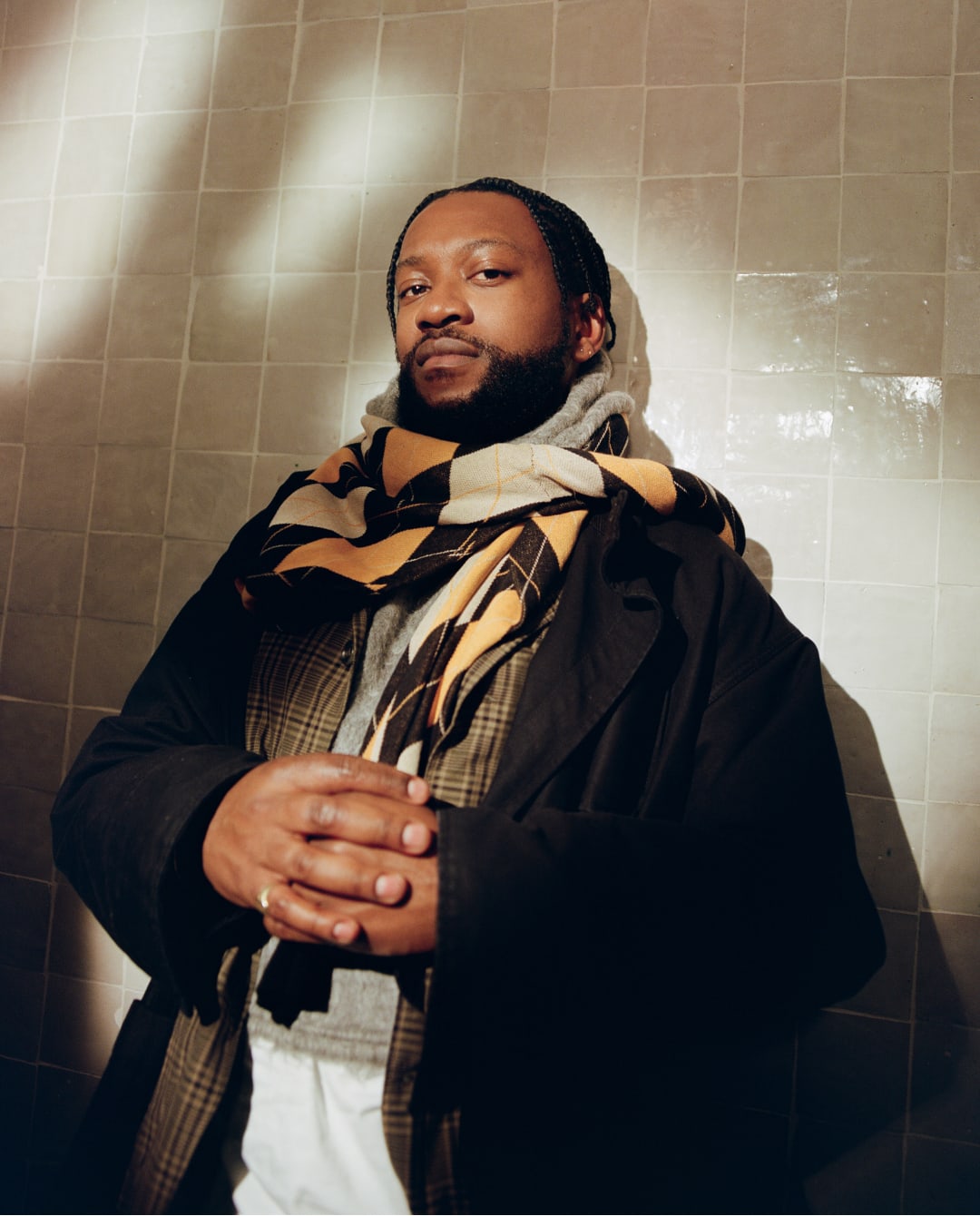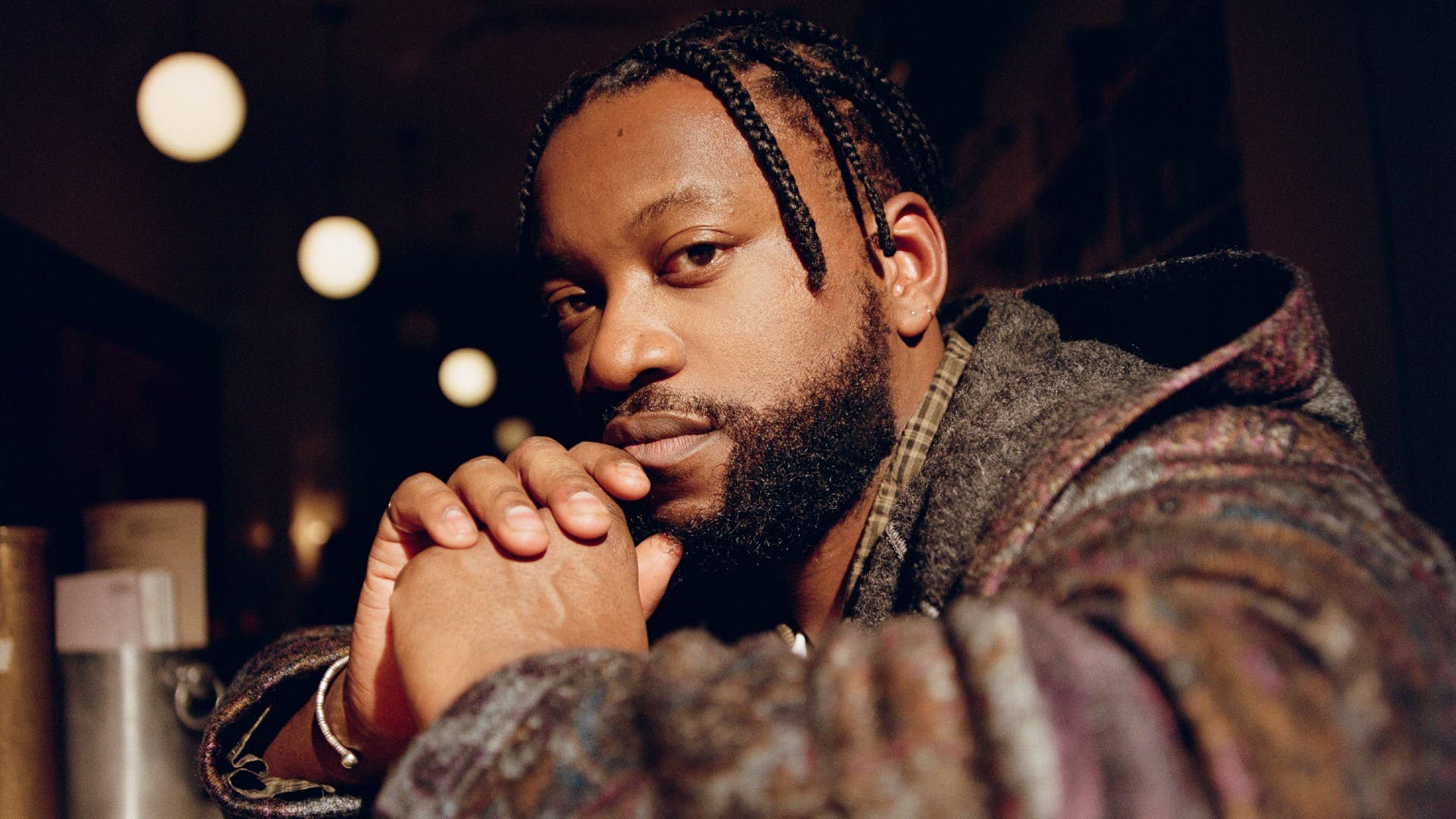
After hearing Esparonto, it becomes very apparent that Jahmal Padmore’s debut is unambiguously gutsy. His first full-length solo project is forthright, open, and honest without any reservations. It’s telling that he’s had to go through real trials and tribulations to be able to speak so transparently. Love, relationships, and the music industry for that matter, are fickle—and Padmore has been through the proverbial mud.
Near the beginning of May, the singer-songwriter connected with Complex Canada in preparation of his album’s release and spoke candidly on a multitude of subjects: His formative years in the church, playing in The Carps, moving to New York and returning to Toronto, the psychoanalysis of self-love and failed romance, and coming to terms with his inner demons and seeking self-actualization. All that said, it’s clear that Padmore is ready for the next stage of his career.
“I want people to be reflective around themselves in love, and how love affects them, and how love affects others,” he explains, joining me over a video call from his home studio near Toronto’s Kensington Market. Over the last decade, Padmore has lived a storied life and has processed a lot of emotions doing what he says “we now lovingly call the work.” This period would be best described as a crisis of identity, as he tried to figure out where he fits into the creative space. He’s also been on a journey of self-forgiveness, reframing his own concept of self, and checking his ego at the door after a series of romantic and artistic faux pas.

The album, in this context, is the first time Padmore has truly felt like the stars have aligned since The Carps’ 2008 EP Waves & Shambles. Back then, he experienced early success with his childhood friend and bandmate, Neil White, in one of Toronto’s more eclectic and era-defining acts—blending rock, punk, R&B, electro, and more into a frenetic and captivating package. They toured with blogosphere darlings The Cool Kids and played alongside the likes of M.I.A., Lupe Fiasco, and Shad. Yet, before they could reach the next level, things abruptly came to an end. Neil had been accepted into Oxford on a scholarship and that, as Padmore recalls, was the slow demise of their project. “There was no way I was going to ask him not to prioritize that over being in a band,” he says. “We just didn’t have time to put energy into it.”
“I was finding my voice again, going to therapy, trying to be a good dude. F*cking it up as I went along, but trying.”
It was a setback for sure, but Padmore persevered. After a brief stint playing drums with Thunderheist and featuring on MSTRKRFT’s sophomore album Fist of God (“So Deep” and “Breakaway”), he decided to move to NYC in 2009 under the guise of making more music—but even that was short-lived. The facade of his intentions began to fade away—partying and chasing after women took precedence, and his convictions as a musician started to waver. “In New York, I was drinking like crazy,” he says, describing his past transgressions. “Putting all of myself out into the world instead of trying to go work on the things that were actually eating me from inside.”
Through this hindsight, he channels these indiscretions across Esparonto’s ten-track runtime into a sprawling, ego-tripping, and introspective odyssey of growth and self-reflection. The complications of relationships take the forefront, but it’s the subtext of self-love and understanding that shine throughout. On the album opener “Sorted,” he sings “Been searching for love in four corners/ To live free of boundaries and borders” to no avail—a track full of contrasting feelings of yearning and dissatisfaction.
On the closing standout “So Cold,” a song about a friend’s depression, Padmore’s soaring vocals resonate around the absence of affection—a sentiment that rings true whether you relate romantically or not. His ability to recount and recant his experiences sincerely is what drives Esparonto from beginning to end. “For me, I’m interested in the nuance of love,” he explains. “Have some self-awareness around what it means to be in love with someone, like the power that you hold in your hands when someone gives you their heart.”
Awareness like this doesn’t come easily either. Padmore learned that the hard way out in New York. He even went as far as to self-sabotage and deliberately botched a drumming audition held by Santigold. Fear, anxiety, and self-doubt started to overwhelm him, and music became less and less of a priority. On top of that, heartbreak and promiscuous behaviour weighed him down. It wasn’t until his return to Toronto in 2012 when he reconnected with old friends—Brendan Philip, Keita Juma, and Matthew Progress—and quietly refocused on his craft.
For a bit, it was time well spent working behind the scenes producing with Keita and managing Brendan, but his ego kept nagging at him: “Do I want to produce? Do I want to be a songwriter? Do I want to be a star?” These were big questions; ones that were beginning to put a strain on his relationships, so he took another step back to strengthen his resolve.

His next effort, circa 2015–18, came after a year of celibacy under the moniker of Miracles, a nod to his upbringing in the church he relentlessly attended as a youth. He describes the venture as having received a “tepid response” from peers while he rediscovered his spiritual roots in the process. “I was finding my voice again, going to therapy, trying to be a good dude. Fucking it up as I went along, but trying.”
After this, he doubled down and started making music again more regularly. “Just writing songs and getting my feelings down on paper,” he explains. His next moves were aimless and freeing—producing “little sampler tracks” that grabbed the attention of his current label Telephone Explosion. It seems that when you combine a pandemic-induced lockdown of writing “three to four songs a day,” a reinvigorated enthusiasm, and an earnest effort to heal, the music that follows is irresistible. Fast forward to the present day, and Jahmal Padmore is ready to present himself to the world once more.
Informed by a “melange” of influences leading up to Esparonto, Padmore pulls from a lifetime of experiences on the record. In one way or another, it’s an album about himself, what happened in his past, how he felt, processed, and learned from previous offences. “Part of the process of growth in therapy is understanding self-forgiveness and self-love,” he admits. “If I wait for everyone to forgive me for my failures and my sins, I’m going to be waiting a long time.”
As a result, he threw as many inspirations as he could into the music—calling upon guitarist Benja and The OBGMs’ keyboardist Colanthony Humphrey to play over 30 beats to achieve his all-embracing vision. Fittingly, too, since the album’s name is a play on the auxiliary tongue of Esperanto, created by Polish ophthalmologist L.L. Zamenhof in 1887. A bold dialect that combines aspects of Romance, Germanic, Slavic, and Greek languages to form a new universal one.
“And I want to be that audacious,” Padmore declares. “I want people to be able to quickly understand that they already speak this language. All music is Black music. All modern contemporary music is Black music. I’m drawing from that place and pulling in things that have been inspired by everything our ancestors have done.”

Conceptually, Esparonto is a gleaming piece of critical self-analysis. An atonement for Padmore’s romantic misgivings throughout the years and a declaration of his renewed artistic intent. It’s a self-contained, genre-blurring cathartic exercise. Spellbinding elements of R&B, cumbia, ranchera, spirituality, and a kaleidoscopic mix of sounds and emotions pour out from the singer at all times. He speaks on the selfishness of his actions (“Ride”), moving forward after failure (“On Without”), enduring pain to grow (“Your Joy”), and the hopefulness of reconciliation (“Sunday In The Living Room”). Ultimately, the goal is an “understanding of self” which he hopes listeners empathize with—Esparonto is his love language after all.
At a time when tap dancing around the issues doesn’t do any good, Padmore’s acknowledgement of his shortcomings allows him to look inward and push onward. He reasons it was the best way to avoid “repeating the same mistakes” and to rebuild his identity—it only took his ego death to remedy. Perversely, however, pain and hardship make for a great listening experience, and Esparonto is here to enjoy. It’s the accumulation of his story thus far, and there’s still more to come on his never-ending journey towards enlightenment. “For me, I was looking for a reason. I was looking for a point and I’m still looking for a point,” he says. “I’m gonna do the best I can. I’m gonna do what I do and put it out there.”


